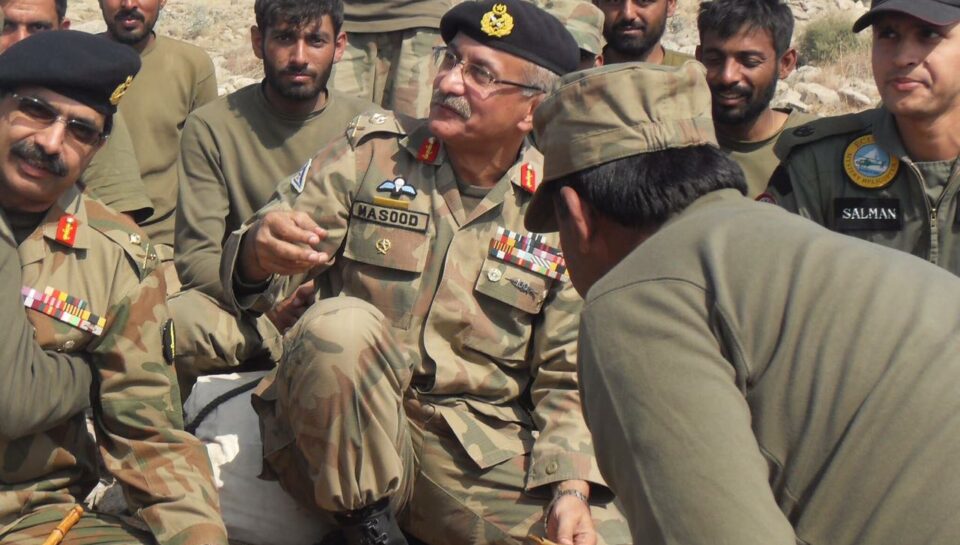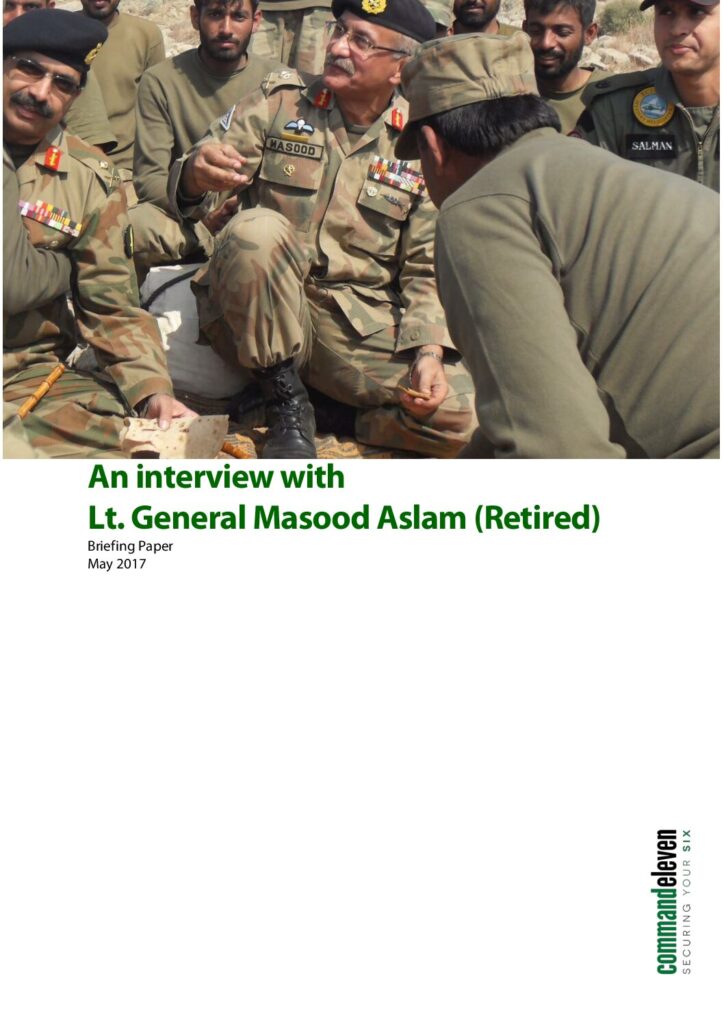Executive Summary
Decorated with Hilal-e-Imtiaz, Hilal-e-Imtiaz (Mil), and Sitar-e-Jurat, Lieutenant General Masood Aslam (Retired) served for almost 40 years in the Pakistan Army. He was seriously wounded during the 1971 War with India and was awarded Imtiazi Sanad. He held important command and staff appointments such as Command of Brigade during Kargil Operations, GOC 23RD Division, DG-National Accountability Bureau (NAB) Punjab, IG Training & Evaluation and Corps Commander Peshawar.
He commanded Army’s XI Corps for 3 years (2007-2010), where he oversaw and supervised some of the major military operations against Tehrik-e-Taliban Pakistan and lost his only son, Hashim Masood, in the December 2009 suicide bombing at the Parade Lane mosque in Rawalpindi. Director General-Operations Faisal Aijaz spoke to him about War on Terror, U.S relations with Pakistan, Afghanistan, Extremism and Line of Control.
How do you see the United States relations with Pakistan and more importantly with the Army?
Historically the U.S – Pakistan relations have always been transactional, where the US geo-political considerations for this region remained the decisive factor. You must know that the U.S interests in Afghanistan have reduced but not finished. The U.S focus now is on Daesh in Middle East as it currently has taken over from Al-Qaeda as the real threat. It will neither want Daesh to gain any major successes in Afghanistan nor like to see the current dispensation totally crumble before the Taliban.
The U.S will also not like to see China-Russia-Pakistan and Iran to have a control of this region and for that India and Northern Alliance will remain its proxies. U.S relationship with Pakistan and the Army will remain transactional and has to keep the carrot of aid/technology dangling before both civil and military leadership. Pakistan has to keep all options open. However, the regional alliance is of greater advantage and permanent nature in long terms.
Afghanistan says that they have targeted Mullah Fazlullah of TTP several times; whereas Pakistan never dared to dismantle or attack the Haqqani Network nor Afghan Taliban, despite the fact that some of them are living in Quetta.
How do you see this statement from the military lens?
Well, the current political leadership in Afghanistan is not a true representative of the Afghan Society. They are rather seen as stooges of foreign powers and are placed there because of presence of U.S led forces.
The entire military machine of 42+ countries alliance failed to control the country side and the situation today in Afghanistan is well known.
Blaming presence of Taliban leadership in Pakistan is an alibi. As long as there are more than 2 million refugees in Pakistan, no concerted action is possible against any Afghan group as every Afghan’s movement will have to be curtailed and monitored.
Any militant group which resists own LEAs is taken on indiscriminately. Mullah Fazlullah is present with a small group of fighters and moving against him by the U.S or ANSF is just an eye wash.



